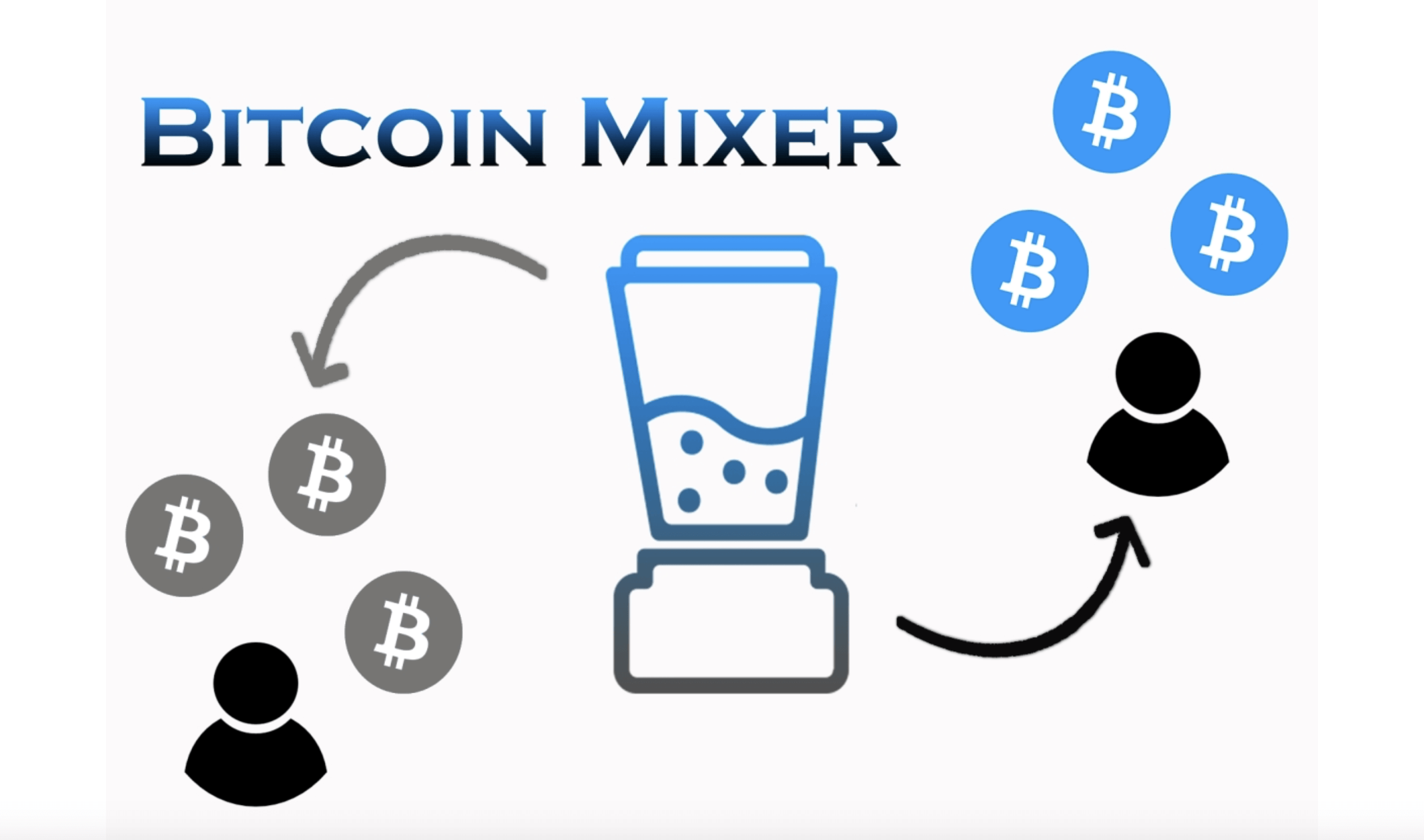As you transact on the Bitcoin blockchain, sooner or later, you’ll come to realize that while your transactions are not entirely linked to your identity, your Bitcoin address, which is public, and your history of transactions can be used to piece together your real identity.
Obviously, this is not a very heartening fact since everyone would ideally conduct their transactions confidentially. While this may be so, many Bitcoin users are not aware that they can add an extra layer of privacy for their Bitcoin transactions.
One excellent way to do this is to use a Bitcoin mixer, which is a service that ‘mixes’ your coins with other users’ coins in a manner that the origin of each of the coins is completely obfuscated, securing your privacy.
What Exactly are Bitcoin Mixers?
Also known as tumblers, blenders, or shufflers, Bitcoin mixers are solutions that allow users to mix their coins with other users’ coins in order to protect their privacy.
As you already know by now, Bitcoin addresses are pseudonymous, meaning while they don’t tie your Identifying information to transactions, a determined person can piece together a transaction trail to the owner of a particular address. Every time you move funds, you risk revealing a great deal of your personal information, from how many coins you own, how you spent them, and so on.
This is where Bitcoin mixers come in. The idea behind mixing coins is to throw off, or so to speak, anyone who might be trying to follow your transactions. By mixing your coins with other users, you can blur the ties between your Bitcoin address and your real-life identity.
How do Bitcoin Mixers Work?
To illustrate how a Bitcoin mixer works, imagine blending a fruit drink. Every fruit that goes in there is like a Bitcoin address. When the drink is done, you can’t really tell which fruit is responsible for which flavor. Just as much, when you mix your coins with other users’, no one can tell which coins originate from which address.
Types of Bitcoin Mixers
Today we have a range of Bitcoin mixers: from centralized to decentralized solutions to others that use privacy coins as part of the process. Below, we’ll take a look at two of the most popular solutions available, mainly centralized mixers and Chaumian CoinJoin mixers.
i) Centralized Mixers
These are mixers that accept Bitcoin in return for sending back different coins. The more the users use this service, the more difficult it is to tie the “incoming” coins to the “outgoing” coins.
Centralized mixers, however, have certain shortcomings. When you deposit your coins in such a mixer, you surrender control of your coins. It’s very conceivable that such a mixer can refuse to return them.
Another problem is since the mixer knows who sent and received which coins, they can easily re-establish the actual identity of coin holders. If they share this information e.g., when compelled to by law enforcement, users stand to lose their privacy.
Then there’s the issue of data. Centralized coin mixers usually get access to information such as user activity, IP and Bitcoin addresses, and so on. Ideally, mixers should delete information logs like these in the spirit of privacy. However, you can never know if a mixer follows through with this.
And finally, centralized mixers can be easily located by law enforcement and forced to shut down. BestMixer is one such mixer that was shut down by Dutch authorities.
ii) Chaumian CoinJoin Mixers
These are mixers that allow a large group of users to pool together their coins as one large payment to themselves. For instance, 100 users will send 0.1 BTC to a new address, and then merge them to become one big transaction. Everyone will get 0.1 BTC back, but this time, no one can tell where each BTC originated from.
Mixers that use the CoinJoin implementation can be designed in a manner that not even they can figure out where each transaction went where. Also, it’s impossible for these mixers to refuse to release the coins since users will not sign the merged transaction if they didn’t get their BTC back.
What Are Some Popular Mixers?
There are reliable wallets that have made a name for themselves in this space, and we’ll take a look at some below.
- Wasabi Wallet is an implementation of the Chaumian CoinJoin wallet. Wasabi is designed in such a way that the operator cannot deanonymize user identity or steal coins. The service is trustless by nature, meaning the service only oversees the “merging” of the different coins and does not know which inputs belong to which output. Moreover, Wasabi uses the Tor anonymity network so no one can track your activity.
- Samourai Wallet also offers a CoinJoin mixing service called Whirlpool that supports both desktop and mobile. With Samourai, all you need to do is to install the wallet – no ID checks, email address, and so on.
- JoinMarket: This is a tool that allows users to merge their transactions to create one huge transaction, obscuring the origin of each in the process. JoinMarket has an interesting model: there are market takers and market makers. The market makers are ‘time-rich’ and collect fees when other users coinjoin with them. The market takers are time-stressed and want to coinjoin as fast as possible. Therefore they pay a fee to coinjoin with their time-rich peers.
What’s the Legal Standing of Bitcoin Mixers?
Much like Bitcoin itself, Bitcoin mixers operate in a legally uncertain area. As such, the legal standing of any Bitcoin mixer differs from jurisdiction to jurisdiction.
There are legal mixers that have been shut down by authorities as they were perceived to promote illegal activity like money laundering.
Centralized mixers, which make up the majority of mixers, are particularly prone to being banned, since they have a single point of attack.
However, as a service, Bitcoin mixing remains largely unencumbered. And even if there was a crack down on centralized mixing services, decentralized mixing services, which are harder to shut down thanks to a distributed platform, would quickly fill in the gap.
What Are Some Use Cases for a Coin Mixer?
The case for a Bitcoin mixer might be compelling, but you may still wonder when at all to use one. Of course, a Bitcoin mixer is useful whenever you’re transacting in Bitcoin for the sake of safety and an extra layer of security. These scenarios should give you an idea of when a Bitcoin mixer would be useful:
- Across the globe, Bitcoin is now accepted for payments by some businesses. If you use the same wallet for every transaction, you’re leaving a trail that makes it easy for illicit players to single out the address as belonging to you. A Bitcoin mixer obscures your transactions, so you’re not leaving a traceable trail that could be followed back to you.
- Suppose your wallet has a variety of cryptos. Now let’s say your wallet’s ID is inadvertently exposed online, one way or another. This would render it susceptible to fraud. With a Bitcoin mixer, there’s zero chance of this happening.
- Imagine you’re an investor/trader holding a substantial amount of crypto in your wallet. Since Bitcoin transactions are public, it’s easy to see how much money a particular address moved, and when. If particularly large sums are involved, you may become the target of unscrupulous parties. A Bitcoin mixer removes the possibility of this happening by mixing your transactions with other users’ so no one can know which transaction belongs to who.
- In the case of hot wallets, which are connected to the internet, your funds are exposed to all manner of online vulnerabilities, from hacking to phishing attacks, to malware. When you use a Bitcoin mixer, transactions to and from your wallet are kept anonymous.
Why Should You Use a Bitcoin Mixer?
- It severs the connection between your sending and receiving addresses, obscuring your transactions.
- It’s impossible for your funds to be traced to any wallet.
- It grants you the anonymity that Bitcoin alone can’t
- It grants you full control over your transactions, as it should be
- Your personal data is kept away in such a manner that third parties have nothing on you.
- A mixing service deletes your transaction history so that they can never be traced back to you.
Final Thoughts
A Bitcoin mixer gives you greater control over your funds by ensuring no one can follow your transactions’ trail. Any potential hacker is thwarted off, and so is any other third-party who is interested in your transactions’ history. If you need to anonymize your transactions even better, a Bitcoin mixer is worth looking at.





